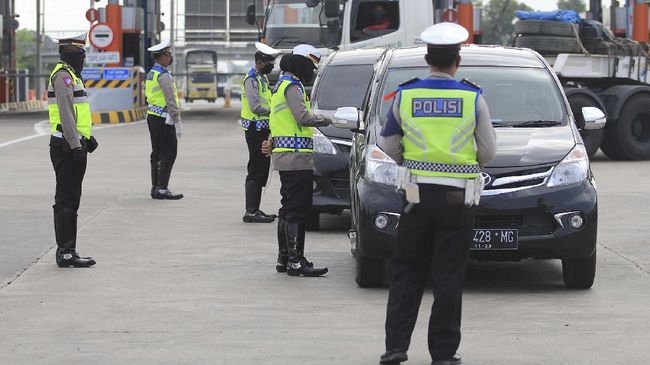Jakarta, CNN Indonesia — The police closed 27 access exits to the toll road to the Central Java (Central Java) area from July 16 to 22, 2021. The decision was taken as an implementation of the policy of implementing the Emergency Community Activity Restriction (PPKM).
“As a result of coordination with the Central Java Forkopimda, all access to Central Java is closed, including toll exits at 27 toll exit gates, we will completely close from Friday the 16th to the 22nd of July,” said Head of Public Relations of the Central Java Police, Kombes Iqbal Alqudusy in a written statement. , Tuesday (13/7).
Iqbal said the closure of the access would prevent residents from DKI Jakarta and other West Java regions from entering Central Java. The toll exits that will be closed are located in the Brebes area to the Sragen border.
According to him, the closure of access is to suppress community mobility and movement during the Covid-19 pandemic.
“We urge the public to stay at home. This is important because it is to save all citizens from the dangers of the corona virus,” he explained.
During PPKM, the Ministry of Transportation previously required two documents that were a requirement for travellers.
The first is the STRP or other certificate issued by the local government. Second, a letter of assignment signed by a company leader with a minimum rank of echelon II with a wet stamp or electronic signature.
The Korlantas Polri has even added blocking points for the Bali-Java Emergency PPKM to 651 locations.
The travelers who will be given access to cross the barrier are those who work in essential and critical sectors.
The essential sectors consist of: finance and banking; capital market; payment system; information and communication technology; hotels that do not handle Covid-19 quarantine; and export-oriented industries.
Then, the critical sectors are: energy, health, security, logistics and transportation, food industry, petrochemicals, cement, national vital objects, disaster management, national strategic projects, construction, basic utilities, and basic daily fulfillment industries.

